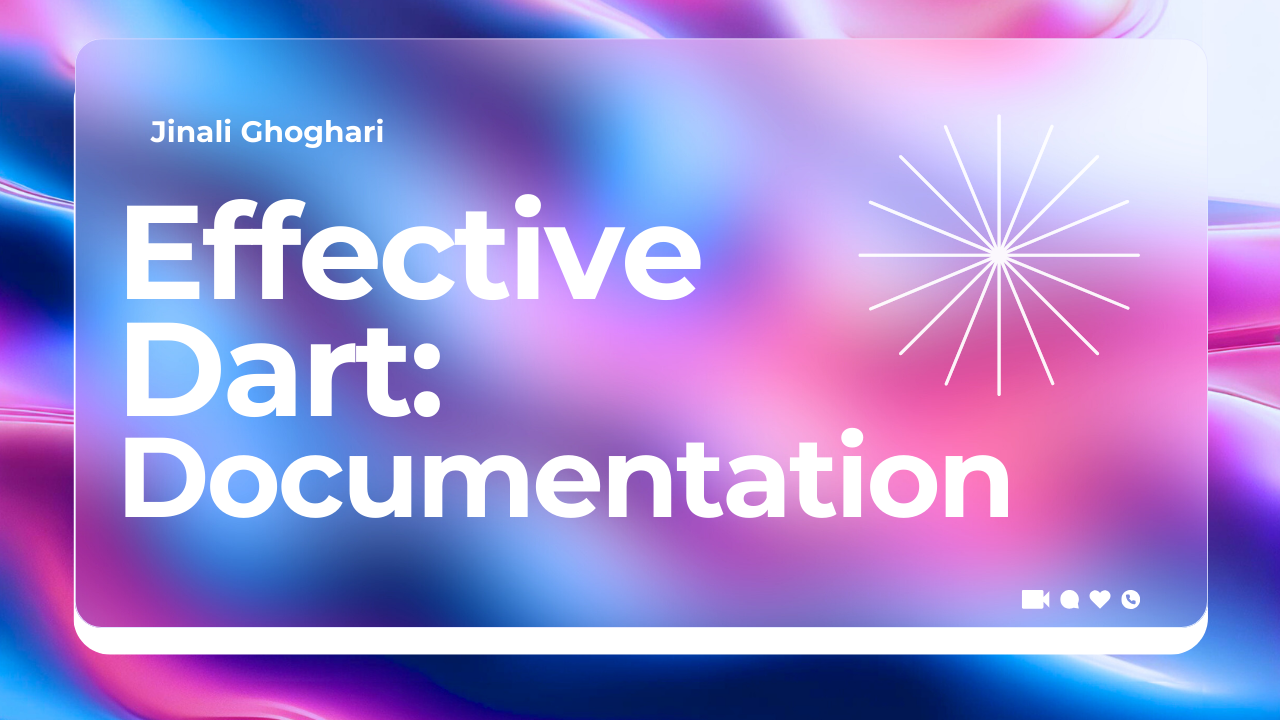Effective Dart: Documentation
 Jinali Ghoghari
Jinali Ghoghari
1. Documenting APIs
Use
///comments to document public APIs (classes, functions, variables) that are part of your library or package.Include a brief description of what the API does, along with any relevant details or constraints.
Example:
/// A class representing a user profile.
class UserProfile {
String name;
int age;
/// Constructs a [UserProfile] with the given [name] and [age].
UserProfile(this.name, this.age);
/// Returns the user's name.
String getName() {
return name;
}
}
2. Parameter and Return Value Documentation
Document parameters and return values using
@paramand@returntags within///comments.Describe the purpose of each parameter and what the function returns.
Example:
/// Adds [a] and [b] together and returns the result.
///
/// @param a The first number to add.
/// @param b The second number to add.
/// @return The sum of [a] and [b].
int addNumbers(int a, int b) {
return a + b;
}
3. Use of Markdown
Leverage Markdown syntax within documentation comments for formatting.
Use Markdown to create headings, lists, links, and code blocks to improve readability.
Example:
/// ## Calculate Sum
///
/// This function calculates the sum of two numbers.
///
/// - [a]: The first number.
/// - [b]: The second number.
///
/// Returns the sum of [a] and [b].
int calculateSum(int a, int b) {
return a + b;
}
Applying Effective Dart Documentation
Here's how you can incorporate Effective Dart documentation guidelines into your development workflow:
Consistency: Document all public APIs consistently throughout your codebase.
Use Tools: Leverage IDEs like IntelliJ IDEA or Visual Studio Code, which provide autocomplete and suggestions for documenting Dart code.
Review and Update: Regularly review and update documentation as code evolves to ensure accuracy and relevance.
Document Intent: Focus not just on what the code does, but also why certain decisions were made.
Subscribe to my newsletter
Read articles from Jinali Ghoghari directly inside your inbox. Subscribe to the newsletter, and don't miss out.
Written by
